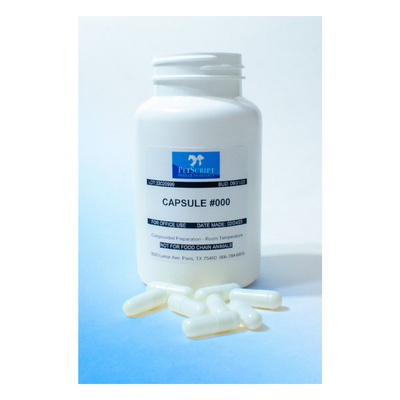Recognizing the Perks and Uses of Fenbendazole in Veterinary Medicine
Fenbendazole has actually established itself as an essential anthelmintic in veterinary medicine. Its capacity to target numerous parasitical infections makes it a valuable device for veterinarians. The medicine's device interferes with vital mobile procedures in bloodsuckers, resulting in effective therapy end results. Its security profile varies between types, demanding cautious consideration in its use (fenbendazole). Comprehending these dynamics can shed light on fenbendazole's wider implications in veterinary care and continuous research right into its potential beyond conventional applications
Mechanism of Action of Fenbendazole

Typical Parasitic Infections Dealt With With Fenbendazole
A selection of parasitical infections are successfully treated with fenbendazole, making it a versatile choice in veterinary medication. This anthelmintic agent is particularly efficient against nematodes, including roundworms and hookworms, which typically affect canines and felines. It is additionally used for the therapy of cestodes, such as tapeworms, providing a broad range of activity versus both types of intestinal bloodsuckers. In addition, fenbendazole is advantageous in taking care of infections triggered by protozoa, specifically Giardia, which can result in gastrointestinal distress in pets. Its efficiency encompasses dealing with certain lungworms in canines and felines, resolving respiratory wellness problems connected to these bloodsuckers. In general, fenbendazole's ability to target numerous parasitical varieties makes it a beneficial tool in vet practice, guaranteeing the health and health of pets influenced by these typical infections.
Safety and Efficacy in Different Pet Species
The safety and effectiveness of fenbendazole vary amongst different pet species, emphasizing the importance of species-specific factors to consider in vet medication. In dogs, fenbendazole is generally well-tolerated and effective versus a variety of gastrointestinal bloodsuckers, consisting of roundworms and hookworms. For felines, nonetheless, its usage is much less usual and may need careful application because of potential adverse reactions.
In animals, such as livestock and lamb, fenbendazole demonstrates efficiency against numerous endoparasites, adding to boosted health and wellness and efficiency. Nevertheless, the pharmacokinetics and prospective negative effects can vary considerably between species, necessitating mindful examination by veterinarians.
Equines additionally respond favorably to fenbendazole, especially for treating strongyles and ascarids, though dose and management routes should be tailored browse around here to their unique physiology. As a result, comprehending these differences is essential for maximizing treatment outcomes and ensuring pet welfare across varied types.
Management and Dosage Guidelines
Correct management and dose standards are vital for making best use of the healing effects of fenbendazole while decreasing possible side effects. The dosage typically varies depending upon the types being treated, the certain problem, and the formulation of fenbendazole utilized. fenbendazole capsules. For canines and felines, a typical dose is 50 mg/kg body weight, provided once daily for three successive days, but vets might readjust this based on private health and wellness analyses
It is essential to carry out fenbendazole with food to boost absorption and minimize gastrointestinal distress. The drug is offered in various kinds, including granules and paste, permitting versatile administration alternatives. Monitoring the pet's action throughout and after treatment is recommended to verify efficacy and safety. Furthermore, vet advice is crucial to identify the proper duration of therapy based on the sort of parasitical infection being resolved, assuring perfect end results for the pet's wellness.
Future Viewpoints and Research Study on Fenbendazole
Research on fenbendazole continues to develop, concentrating on its potential applications beyond traditional antiparasitic usages. Recent studies have actually explored its effectiveness in dealing with different types of cancer cells, specifically in vet oncology. Initial information recommend that fenbendazole might hinder the development of tumor cells and enhance the results of other chemotherapeutic representatives.
In addition, scientists are examining its function in handling intestinal conditions in animals, highlighting its anti-inflammatory buildings. The adaptability of fenbendazole for various types increases concerns about its security accounts and optimal dosing programs in varied populations.
As rate of interest grows, there is a need for comprehensive clinical tests to develop evidence-based standards for these novel applications. Future research might also investigate the mechanisms behind additional reading fenbendazole's results, potentially leading the way for cutting-edge restorative techniques in vet medication. The recurring exploration of fenbendazole might greatly boost treatment choices for various vet conditions.

Often Asked Questions
Is Fenbendazole Safe for Pregnant Animals?
The safety of fenbendazole for expectant animals remains unsure. While some research studies suggest very little danger, veterinarians normally recommend caution and commonly discourage its use during maternity unless the advantages clearly exceed possible risks.
Can Fenbendazole Be Made Use Of in Livestock?
Fenbendazole is commonly used in animals website here to deal with various parasitic infections. fenbendazole. Its effectiveness versus intestinal worms makes it a useful anthelmintic, adding to improved health and efficiency in pets elevated for food and fiber
What Are the Adverse Effects of Fenbendazole?

The adverse effects of fenbendazole may include intestinal disruptions, sleepiness, and allergies. In unusual cases, much more serious responses might happen, requiring careful tracking and examination with a vet during therapy.
How Does Fenbendazole Contrast to Various Other Dewormers?
Fenbendazole offers broad-spectrum effectiveness versus different parasites, often contrasting favorably to various other dewormers. Its special system targets different life stages, making it efficient, while normally providing a favorable safety and security profile compared to options offered on the market.
Can Fenbendazole Be Used for Treating Cancer Cells in Pet Dogs?
The capacity of fenbendazole in dealing with cancer in pet dogs has actually garnered interest. Preliminary studies suggest it may hinder cancer cell growth, yet even more study is necessary to verify its efficiency and safety in vet oncology.